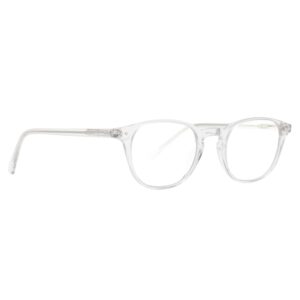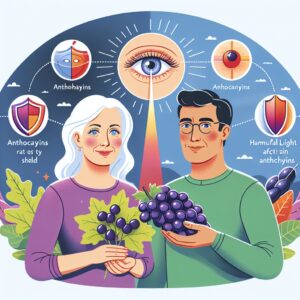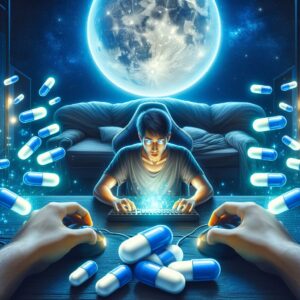
Key Takeaways
-
Blue light can disrupt sleep patterns, but it’s essential for maintaining focus during the day.
-
Programmers can protect their eyes and enhance focus using blue light blocking strategies and supplements.
-
Natural sources of lutein and zeaxanthin, like leafy greens and eggs, can bolster eye health.
-
Setting up an ergonomic workspace with proper lighting can mitigate blue light exposure.
-
Understanding when to use blue light blocking tools and supplements is key for optimal focus and eye health.
Shedding Light on Blue Light: What Programmers Need to Know

“Software Programmers Joe and Matt, 20 …” from www.flickr.com and used with no modifications.
As a programmer, you’re no stranger to long hours in front of a screen. But here’s something you might not know: the blue light that’s emitted from your monitor could be messing with more than just your eyes—it could be impacting your sleep, mood, and overall focus. Before we dive into how to combat the effects of blue light, let’s get to grips with what it actually is.
Blue light is a type of light with a very short wavelength, which means it produces higher amounts of energy. Sounds cool, right? Well, yes and no. During the day, blue light can be beneficial—it boosts attention, reaction times, and mood. But too much exposure, especially after sunset, can disrupt your natural sleep-wake cycle, leaving you tossing and turning when you should be dreaming about code (or beaches, if that’s more your style).
Understanding Blue Light and Its Impact
So, what’s the deal with blue light and your eyes? Your eyes are pretty good at blocking UV rays from reaching the light-sensitive retina at the back of the eyeball. However, they’re not as adept at blocking blue light. This can lead to digital eye strain, causing symptoms like dry eyes, fatigue, and headaches. Moreover, prolonged exposure to blue light may increase the risk of macular degeneration over time.
Blue Light: To Block or Not to Block
It’s all about balance. During the day, blue light is your ally for staying alert and focused. But as night falls, it’s time to shield your eyes from its effects. That’s where blue light blocking strategies come into play. Whether it’s using software that adjusts your screen’s color temperature or wearing glasses that filter out blue light, taking steps to protect your eyes can help maintain your focus and keep your sleep cycle on track.
Focus Fuels: Supplements Against Eye Strain
Let’s talk supplements. While it’s best to get your nutrients from a well-rounded diet, sometimes you might need an extra boost. For those of us glued to our screens, supplements like lutein and zeaxanthin can be real game-changers. These antioxidants are found in the retina and are known to help filter blue light and protect against its potential damage.
Natural Allies: Diet Over Pills
But before you start popping pills, consider this: your diet can have a huge impact on your eye health. Foods rich in lutein and zeaxanthin include leafy greens, corn, eggs, and oranges. So, loading up your plate with these can help fortify your eyes against strain.
Retina-Ready Recipes: Eat Your Way to Sharper Focus

“juice #kale #cucumber #broccoli …” from www.flickr.com and used with no modifications.
For example, a spinach and kale salad topped with boiled eggs and a side of fresh orange slices is not only a feast for your taste buds but also a feast for your eyes.
Remember, the key to using diet to help with blue light exposure is consistency. Incorporate these foods into your daily meals, and you’re setting yourself up for success.
Melatonin and Blue Light: The Battle for Your Sleep
Melatonin is like the sandman’s little helper, telling your body when it’s time to hit the hay. But when blue light enters the picture, it’s like a loud party next door keeping you awake. This light messes with your internal clock by suppressing melatonin production. And when you’re a programmer, burning the midnight oil, this can mean a restless night and a groggy morning. The solution? Limit your exposure to blue light a couple of hours before bed, and you’ll invite the sandman back into your bedroom.
Dimming Down: Adjusting Evening Screen Time
As evening approaches, it’s wise to tweak your screen habits. This doesn’t mean you have to give up coding or your favorite show; just make some adjustments. Most modern devices come with settings that reduce blue light emission. Switching to ‘night mode’ or installing apps like f.lux can change the color temperature of your display, making it warmer and less likely to interfere with your sleep. And hey, if you can, why not replace some of that screen time with a book? Your eyes will thank you.
Even better, if you can wrap up your screen work when the sun sets and spend the evening hours in dimmer, warmer light, you’ll be doing your sleep patterns a huge favor. That’s a tough ask for many programmers, but it’s worth a try whenever possible.
The Blue Debate: When Supplements Make Sense
While we’ve established that a diet rich in certain nutrients can support eye health, there are times when supplements might make sense. If you’re a programmer who struggles to get a variety of fruits and veggies in your diet, or if you’re working on a project that demands extra hours in front of the screen, supplements containing lutein and zeaxanthin could be a good backup plan to help shield your eyes from blue light.
Supplement Spotlight: Lutein and Zeaxanthin
These two antioxidants are like the bodyguards of your eyes. They’re naturally found in the macula, where they help filter blue light and protect against oxidative stress. You can get them from food, but high-quality supplements are a good alternative, especially if your diet is less than ideal. Just remember to look for products with a seal of approval from reputable organizations and, most importantly, consult with a healthcare provider before starting any new supplement regimen.
Signs Your Screen Time is Too High
![]()
“City Blurry Images | Free Photos, PNG …” from www.rawpixel.com and used with no modifications.
If you’re experiencing symptoms like dry eyes, headaches, blurred vision, or trouble sleeping, it might be time to assess your screen time. These can be telltale signs that the blue light from your devices is taking a toll. Listen to your body—if you’re feeling off, it could be a signal to take a break, adjust your screen settings, or look into blue light blocking solutions.
Blueprint for Blue Light Balance
Creating a blueprint for managing blue light exposure is like setting up a game plan for a coding project. It involves being proactive about your screen time, making adjustments to your environment, and knowing when to step away. Let’s break it down:
First, during the day, make sure your workspace is well-lit with natural light if possible. This helps balance the blue light from screens and reduces strain. Second, take regular breaks using the 20-20-20 rule: every 20 minutes, look at something 20 feet away for 20 seconds. And third, consider your screen settings and use tools to minimize blue light as the day progresses.
Finally, understand that it’s not just about the light. Your overall lifestyle—exercise, hydration, and rest—plays a huge role in how well you can focus and stay healthy.
Beyond the Screen: Lifestyle Tweaks for Better Focus

“sport, training, exercise, lifestyle …” from pxhere.com and used with no modifications.
There’s more to eye health than what happens on-screen. Regular exercise can improve blood circulation, which is great for your eyes. Staying hydrated keeps your eyes moist and less prone to dryness. And getting enough sleep is crucial—not just for your eyes, but for your overall ability to concentrate and perform at your best.
Tech Innovations: Upcoming Solutions for Eye Health
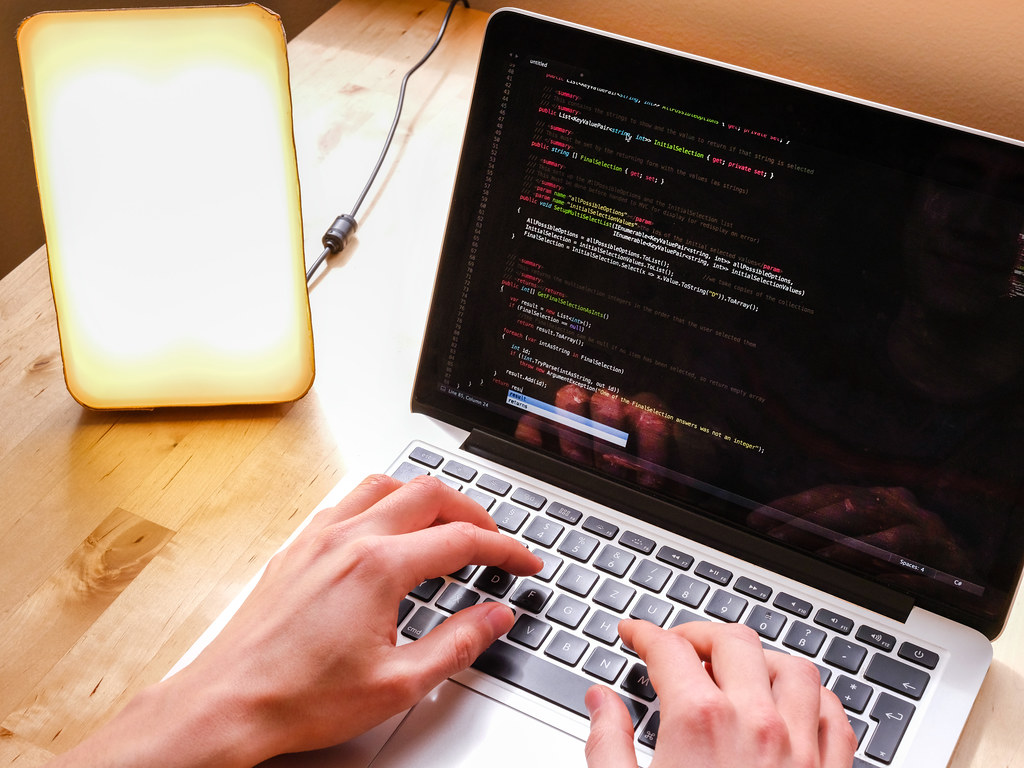
“Task Light | A task light in use. Check …” from www.flickr.com and used with no modifications.
The tech world is always buzzing with new innovations, and eye health is no exception. We’re seeing more and more products designed to protect our peepers from blue light. From monitors with built-in blue light filters to smart glasses that adjust to your environment, the future looks bright (but not too bright) for programmers and their eyes.
So keep an eye out for these innovations. They might just be the next big thing to help you code more comfortably and with better focus.
-
Use software like f.lux to adjust your screen’s color temperature at night.
-
Consider blue light blocking glasses for heavy screen use.
-
Supplement with lutein and zeaxanthin if your diet is lacking in these nutrients.
-
Exercise regularly and stay hydrated to support overall eye health.
-
Stay informed about new tech that can help protect your eyes from blue light.
FAQs for Fighting Fatigue
Can blue light glasses really improve focus for programmers?
Absolutely. Blue light glasses are designed to filter out the blue light emitted by screens, which can help reduce eye strain and prevent fatigue. By wearing these glasses, programmers can work longer without discomfort, maintaining focus on their tasks. However, glasses should be one part of a holistic approach to managing screen time and eye health.
For example, a software developer found that wearing blue light glasses reduced her daily headaches, which in turn helped her concentrate better on her coding tasks.
What are the symptoms of blue light overexposure?
Symptoms of blue light overexposure include eye strain, headaches, blurred vision, dry eyes, and difficulty sleeping. If you’re experiencing these symptoms regularly, it’s a sign that you might need to take steps to reduce your blue light exposure.
How can I tell if I need a blue light supplement?
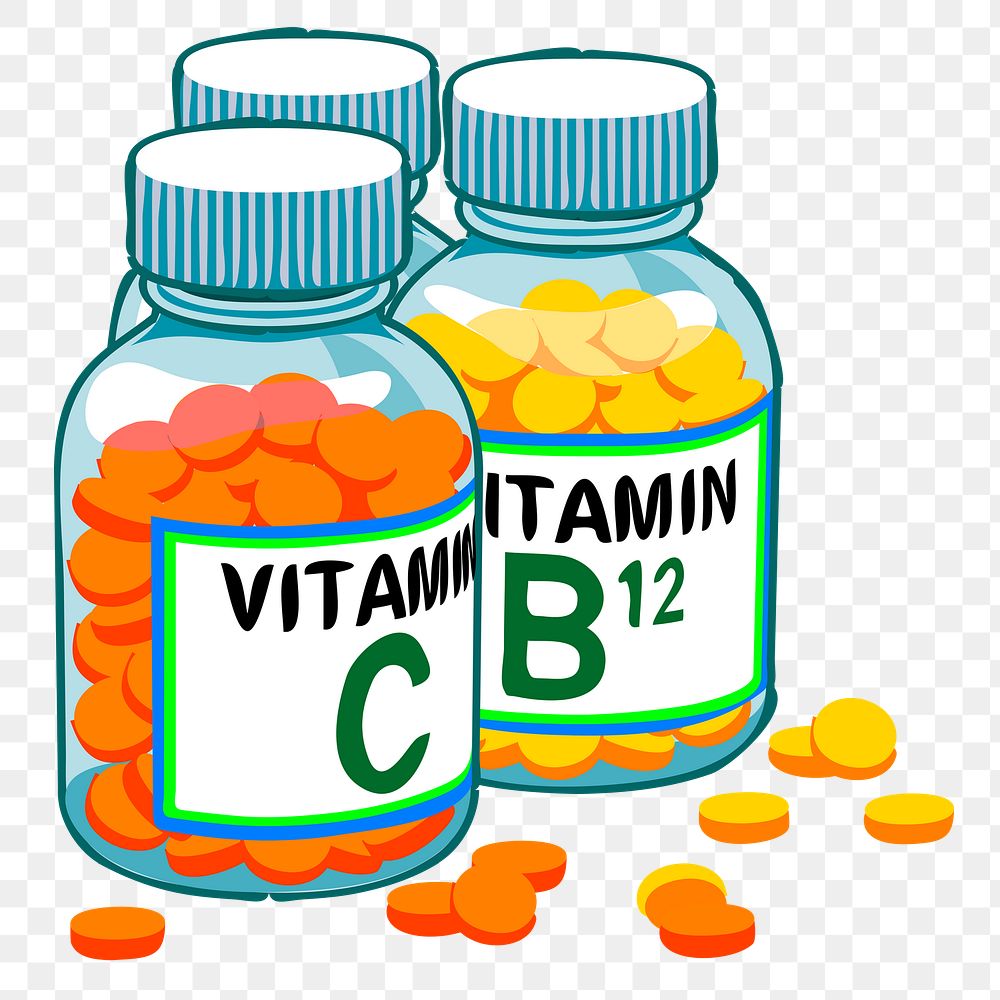
“Supplement Bottle Images | Free Photos …” from www.rawpixel.com and used with no modifications.
If you’re struggling with symptoms of digital eye strain and adjusting your screen habits hasn’t helped, you might benefit from a blue light supplement. These supplements, which typically contain lutein and zeaxanthin, can support eye health. But it’s always a good idea to consult with a healthcare professional before starting any new supplement.
What are some quick tips to reduce blue light exposure?
-
Adjust the brightness and color temperature of your screens.
-
Use blue light filtering software or built-in settings like ‘night mode’ on your devices.
-
Take regular breaks from your screen using the 20-20-20 rule.
-
Ensure your workspace is well-lit with natural light to balance the artificial light from screens.
-
Wear blue light blocking glasses during heavy screen use.
